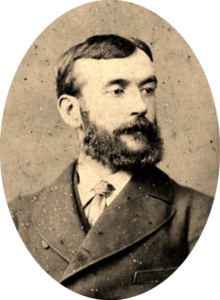Thomas Sexton | |
|---|---|
 Sexton, c. 1880s | |
| Member of Parliament | |
| In office 1880–1885 | |
| Preceded by | Denis Maurice O'Conor and Edward King-Harman |
| Succeeded by | Constituency divided |
| Constituency | County Sligo |
| In office 1885–1886 | |
| Preceded by | New Constituency |
| Succeeded by | Edward Joseph Kennedy |
| Constituency | South Sligo |
| In office 1886–1892 | |
| Preceded by | James Horner Haslett |
| Succeeded by | H. O. Arnold-Forster |
| Constituency | Belfast West |
| In office 1892–1896 | |
| Preceded by | John Stack |
| Succeeded by | Michael Joseph Flavin |
| Constituency | North Kerry |
| Lord Mayor of Dublin | |
| In office 1888–1890 | |
| Preceded by | Timothy Daniel Sullivan |
| Succeeded by | Edward Joseph Kennedy |
| Personal details | |
| Born | 1848 Ballygannon, County Waterford, Ireland |
| Died | 1932 (aged 83–84) |
| Political party | Irish Parliamentary Party (until 1891) Irish National Federation (1891 to 1896) |
Thomas Sexton (1848–1932) was an Irish journalist, financial expert, nationalist politician and Member of Parliament (MP) in the House of Commons of the United Kingdom of Great Britain and Ireland from 1880 to 1896, representing four different constituencies.[1] He was High Sheriff of County Dublin in 1887 and Lord Mayor of Dublin from 1888 to 1890.[2] Sexton was a high ranking member of the Irish Parliamentary Party, raised up by Charles Stewart Parnell himself. However, Sexton broke with Parnell and joined the Anti-Parnellites in 1891 following Parnell's marriage scandal. Sexton was disheartened by the subsequent infighting amongst the Anti-Parnellites and pulled back from politics. He thereafter became the chairman of the Freeman's Journal, one of the largest newspapers in Ireland.
- ^ Maume, Patrick (1999): The long Gestation, Irish Nationalist Life 1891–1918, "Who's Who" p.243, Gill & Macmillan, ISBN 0-7171-2744-3
- ^ Boylan, Henry (1999). A Dictionary of Irish Biography. Dublin: Gill and Macmillan. p. 393. ISBN 0-7171-2945-4.